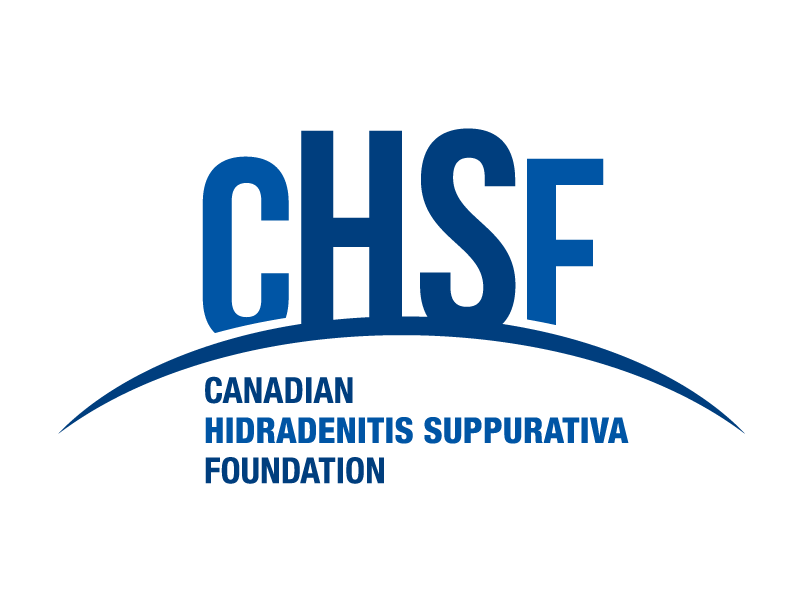Hidradenitis Suppurativa (HS) is a challenging chronic skin condition marked by painful nodules, abscesses, and tunnels in sensitive areas like the armpits, groin, buttocks, and under the breasts. Coping with HS demands a multifaceted treatment strategy incorporating pharmacological, surgical, and Health Nutrition interventions. Health Nutrition plays a vital role in managing HS symptoms and improving overall well-being. By adopting a balanced diet rich in anti-inflammatory foods and nutrients, individuals with HS may experience symptom relief and better disease management. Emphasizing Health Nutrition in HS care can complement pharmacological and surgical treatments, promoting a holistic approach to managing this complex condition. Explore the impact of Health Nutrition on HS management and discover practical dietary strategies to enhance symptom control and quality of life.

Canadian Hidradenitis Suppurativa Foundation is committed to improving the lives and management of HS patients by raising awareness, educating dermatologists, and providing valuable resources and support to those affected. One crucial aspect of managing HS is understanding the impact of nutrition and lifestyle changes, as these factors can contribute to the improvement of symptoms and overall quality of life.
While HS is not caused by lifestyle factors, certain triggers and habits may worsen the severity or frequency of symptoms for some individuals. As such, incorporating a healthy diet and making positive lifestyle changes can play a vital role in managing the condition effectively. Achieving and maintaining a healthy weight, identifying and avoiding trigger foods, and adopting sound nutritional habits are essential to help reduce inflammation, minimize flare-ups, and promote overall health and wellbeing.
In this blog, we aim to provide a comprehensive guide to navigating nutrition and lifestyle changes to better manage Hidradenitis Suppurativa. We will discuss practical tips, strategies, and resources to help patients make informed decisions about their dietary and lifestyle choices, supported by insights from research and clinical experience.
Through this exploration, we hope to empower HS patients and healthcare providers with the knowledge and tools necessary to optimize symptom control and enhance quality of life for those affected by this challenging skin condition. Together, we can continue to make strides in improving the lives and outcomes for our HS community.
Maintaining a Healthy Weight
A healthy body weight can play a significant role in managing HS symptoms, as excess weight might contribute to increased inflammation and friction in affected areas. Developing a long-term strategy to achieve and maintain a healthy weight may help reduce flare-ups and promote overall health. Consider the following tips to support your weight management journey:
- Consult a Registered Dietitian or Nutritionist: A healthcare professional specializing in nutrition can offer guidance in building a balanced diet tailored to your individual needs and preferences.
- Practice Portion Control: Be mindful of serving sizes and avoid overeating.
- Prioritize Balanced Meals: Include a variety of whole, minimally processed foods, such as fruits, vegetables, lean proteins, whole grains, and healthy fats in your diet.
- Engage in Regular Physical Activity: Aim for at least 150 minutes of moderate-intensity exercise or 75 minutes of vigorous-intensity exercise per week, as recommended by the Canadian Physical Activity Guidelines.
Identifying and Avoiding Trigger Foods
Some individuals with HS may find that specific foods or dietary factors can trigger or worsen their symptoms. Identifying and avoiding these triggers can help improve symptom control. Common triggers may include:
- Dairy Products: Some HS patients report worsening symptoms after consuming dairy products, possibly due to the presence of hormones or inflammation-promoting components in these foods.
- High-Glycemic Foods: Foods high in added sugars or refined carbohydrates can cause rapid spikes in blood sugar and may exacerbate inflammation.
- Nightshade Vegetables: For some individuals, vegetables from the nightshade family (e.g., tomatoes, potatoes, eggplant, and peppers) may trigger or worsen HS symptoms due to their alkaloid content.
- Processed Foods: Chemically-laden, heavily processed foods may contain ingredients that exacerbate inflammation, such as artificial additives or trans fats.
To identify potential triggers, consider implementing an elimination diet under the supervision of a healthcare professional, followed by a controlled reintroduction of suspected foods to monitor symptom changes.
Embracing Anti-Inflammatory Health Nutrition
Adopting an anti-inflammatory diet may help reduce inflammation and improve symptoms for some HS patients. An anti-inflammatory diet typically includes:
- Omega-3 Fatty Acids: These healthy fats, found in fatty fish, walnuts, flaxseeds, and chia seeds, have potent anti-inflammatory properties.
- Antioxidant-Rich Foods: Colorful fruits and vegetables, including berries, leafy greens, and bright orange produce, are rich in antioxidants, compounds that help combat inflammation.
- Whole Grains: Choose whole grains such as brown rice, quinoa, and whole grain bread over refined carbohydrates to maintain stable blood sugar levels and promote better digestion.
- Lean Proteins: Opt for lean protein sources like poultry, fish, beans, and legumes to provide essential amino acids without contributing excess saturated fat.
Consult with a healthcare professional to tailor your diet to your specific nutritional needs, preferences, and sensitivities.
Adopting a Holistic Lifestyle Approach
In addition to dietary changes, other lifestyle modifications may help improve HS symptoms and overall wellbeing. Consider implementing the following strategies:
- Prioritize Sleep: Aim for 7-9 hours of restorative sleep each night, as optimal sleep is essential for maintaining overall health and reducing inflammation.
- Manage Stress: Engage in regular stress-reduction techniques such as mindfulness practice, yoga, or deep breathing exercises to reduce inflammation and support mental wellbeing.
- Hygiene and Skincare: Practice gentle and consistent skincare, avoiding harsh chemicals or irritants, and wearing loose-fitting, breathable clothing to minimize friction in affected areas.
Conclusion
Understanding the impact of nutrition and lifestyle changes is essential in managing Hidradenitis Suppurativa effectively. By maintaining a healthy weight, identifying and avoiding trigger foods, embracing anti-inflammatory nutrition, and adopting a holistic lifestyle approach, patients can take control of their condition and experience improved symptoms and quality of life.
Are you or someone you know living with hidradenitis suppurativa? The Canadian Hidradenitis Suppurativa Foundation is here to help. Our mission is to raise awareness, provide resources, and support those affected by this complex skin condition. By educating HS patients and healthcare providers on the importance of nutrition and lifestyle factors in managing the condition, we empower our community members and make progress in improving outcomes. Don’t go through this alone – join us and take control of your HS journey today. Contact us now to learn more and get the support you need.
